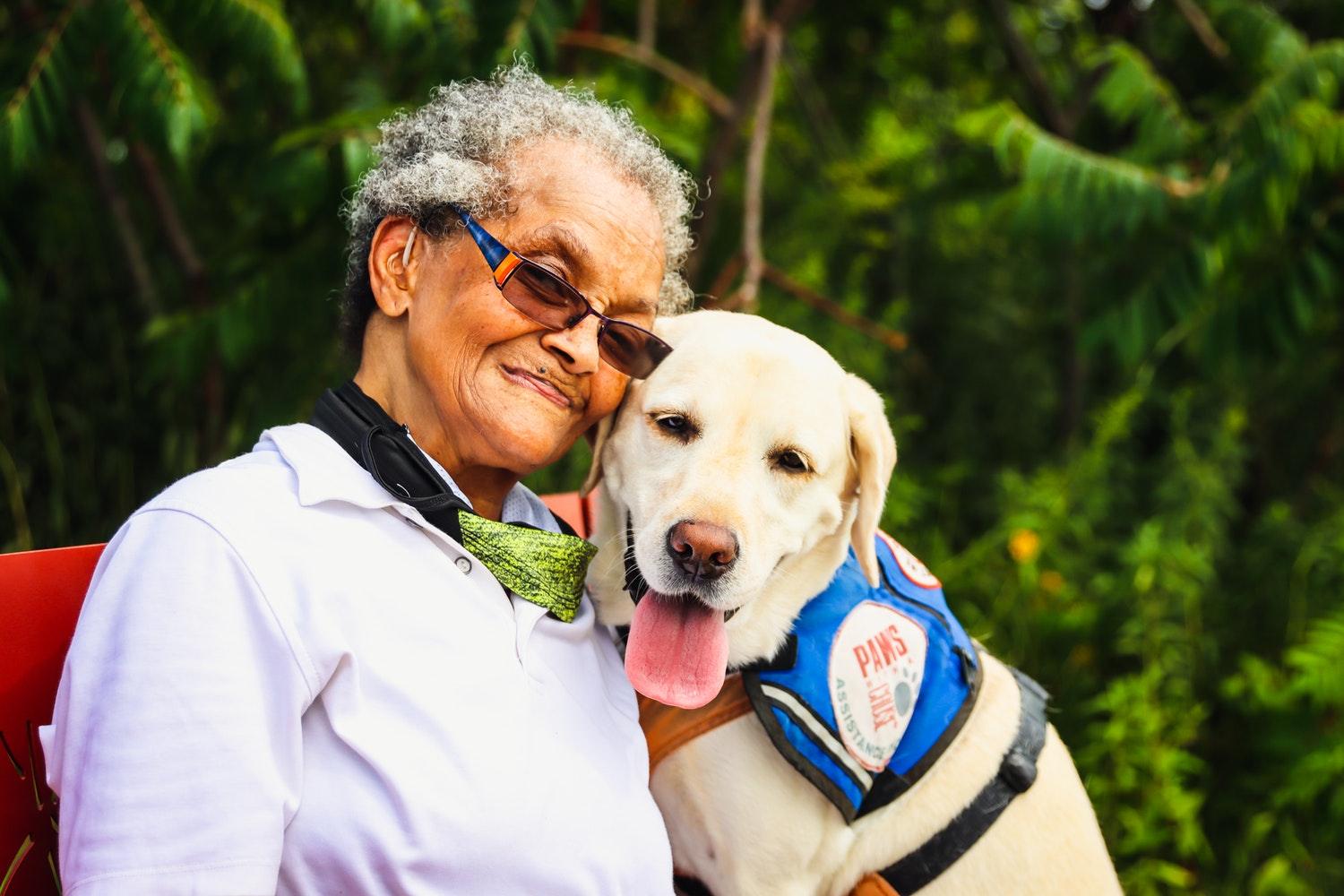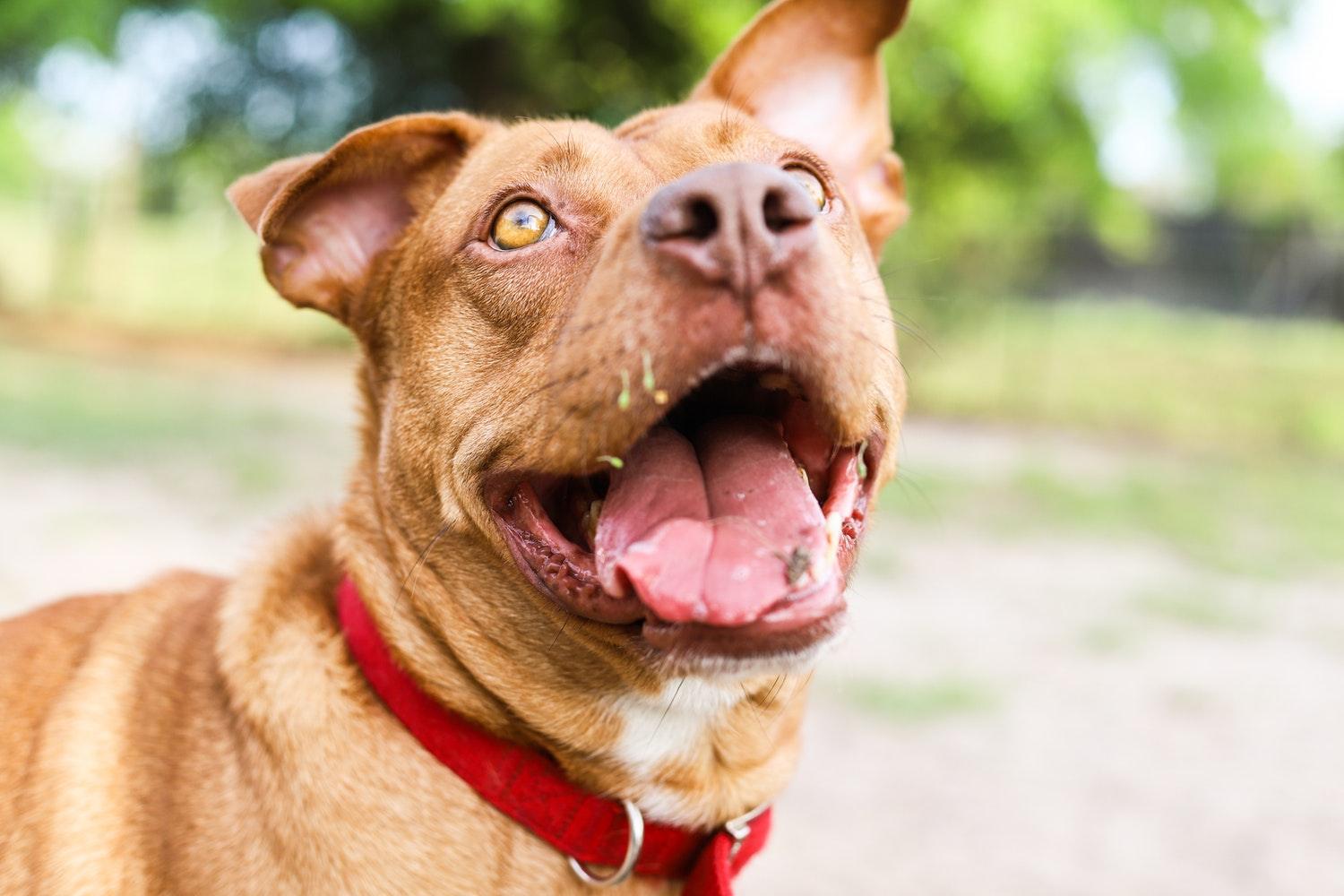
Adopting a Senior Dog - What You Should Know
Adopting a dog is always an exciting and rewarding experience. Not only do you make a difference in the life of a dog, but you gain so much unconditional love and affection. It’s a total win-win situation for you and your pup. We are so jealous thinking of all the kisses and cuddles you’re probably getting right now. Being a dog mom really has all the perks.
While adopting a dog of any age is an amazing experience, adopting a senior dog offers a little something different. That’s what we want to talk to you about today — all the details about adopting a senior dog, things you may know, and things you’ll be hearing and learning for the first time.
It’s a rewarding experience, but there are nuances to this experience that are different from adopting puppies and young adult dogs. We can all agree that knowing all the facts is always best!
What Is a Senior Dog?
Let’s start with defining what we mean by “senior dog.” Again, having all the facts and truly understanding these golden year pups is essential. You want to be ready for whatever comes your way in your new adventures.
Older pets require different things than a new puppy. Let’s discuss.
What Age Are Dogs Considered “Senior”?
So what exactly does the age need to be to consider your dog a “senior''? Well, that would depend on the breed of your pup. Different factors, including actual lived years, can determine when your dog becomes a senior.
Larger dog breeds age faster and will become considered senior in about half the time of smaller breeds. Mobility, weight, and overall health can also add years to your dog’s life.
As an overall generalization, dogs ages five to ten years, again depending largely on breed size, are considered senior. However, dogs will be considered at that senior level if their mobility is limited or their weight is excessive. Excess weight can cause limited mobility as well as aging joints and other health issues like arthritis, etc.
New Home, New Rules — New You
Along with advice and guidance from your dog rescue and vet, pet parents help put some pep in their senior pet’s step (or paw).
First and foremost, watch their diet. Ensuring that you’re feeding them a proper diet that is made for their size, age range, and target weight class. This will keep your pup from getting overweight, which can weaken joints, cause pain, and premature aging.
You also need to ensure that once your pup comes home, they are getting adequate walks and exercise. If there are any issues or signs of obesity, the proper exercise will help your pup get back into shape.
Any issues with arthritis due to weight gain will slowly fade as they shed pounds, and you’ll feel like you have a puppy instead of an old man in the house!
Need some workout inspiration? This is the perfect time to invest in our Best Friends Collection. The designs are cute and fun and will fit in perfectly for all those dog park runs in your future.
What To Expect When You’re Expecting a Senior Dog
Every dog is unique (and perfect), but, in general, there are a few things you can expect when you’re adopting a senior dog. Of course, you don’t expect them to act like puppies. If you were expecting a puppy, you’d go with a younger dog.
There might be a few tiny details to consider before your new family member comes home:
Focus on Rest, Relaxation, and Room To Chill
Bringing home a dog can get everyone anxious and very excited. But a senior dog might need a little more of a lowkey welcome party than you anticipated. An older dog will need a quiet few days to settle into their new life, and that may mean keeping visitors at bay. While you might be ready the moment they’re home to show them off to the entire block, keep it slow and simple for a while.
A senior pup will need extra time adjusting to a new life and a new family compared to a younger dog, so give them what they need. For the first few weeks, keep your life at home and your nightly routine quiet and simple. Senior dogs may come home potty trained, but they are used to doing things a certain way.
Let them adjust slowly to their new routine and schedule and you’ll all be happier for it. All new dogs in a new home will likely need time to adjust, not just senior pets. Once they learn this loving home is theirs for keeps, you’re golden.
Don’t worry; you can still wear all your PAWZ swag around the house and post all the pictures.
Get Your Facts Straight
Many times, senior dogs can come with detailed instructions. These items could be about necessary medications or times they need to eat or go outside. After all, a dog that’s been adventuring a little longer has needs and routines they’re used to.
Your animal shelter or your pet’s previous foster home might have items and info you’ll need to go over before going home. Make sure that any prescriptions or paperwork items are in order and that you have all the details written down. Do they like sleeping in a kennel? Do they have higher or lower energy levels? Do they prefer Air Bud movies or Lady and the Tramp?
It might seem daunting at first, but you’ll have the routine and schedule down in no time. Plus, the good news is your pup knows these items; they will help keep you on track. Once you’ve got the routine down, you won’t even realize you ever did things a different way. In fact, are you training them or are they training you?
Tips and Tricks: Teaching Old Dogs Is Possible
We can’t send you off onto your new adventures without a few tips to get you started. Bringing a senior dog home is a rewarding experience for both you and your new pup. We are so excited to help you along the way.
Accessibility Is Key
Make sure that if your dog has certain physical needs, the items are in place before coming home. For instance, if your dog suffers from arthritis and requires ramps or stairs to access areas like the couch, buy and install them before bringing home your new furbaby. This will make their transition so much easier and help them bond with the family from the moment they step inside.
Toys, Treats, and Things
This is another topic that the workers at the shelter can help you with. Find out ahead of time what type of food your dog is used to and what treats will agree with their tummy. This will save you so much time once they are coming home because you’ll be prepared to keep their diet intact.
Why is this important? Dogs’ stomachs are sensitive to change and a senior dog is especially susceptible to this. Having the foods and treats on hand that they’re used to will make them much more comfortable in their new environment.
Toys are so much more fun. Be sure to have their spots picked out and set up before they come home so that they know exactly where they fit in, the moment they come home. Be sure to have toys and blankets home a few days prior to them coming home. This way, all of their new items will have your smells intact the moment they get home.
Doing a Little More With a Lot of Love
If you feel the need to do something special for the senior dogs you didn’t adopt, we know just the thing. Our Donate To A Dog Collection is a group of items you can purchase on our site that are donated to dogs still waiting for their forever homes.
It’s a great way to give a little something special to dogs that don’t have families just yet, but this will also give them hope that their moment is coming.
The best part? It’s a very easy process. Next time you’re buying a few cute tees, you just add one of these items to your cart, and it will automatically be sent to a shelter. This, plus the money we donate in your name from every purchase you make, makes a difference for shelters nationwide.
Take All the Pictures: Golden Hour With Golden Years Dogs
Don’t forget to tag us in all your cute new pics with your new furbaby. We are confident that you have the details, tips, and tricks you need here to get yourself started and bring your senior dog home with confidence.
It’s time for a whole new leash on life!
Sources:
Defining Senior Age in Dogs | PetMD
Teaching An Old Dog New Tricks: Adopting Senior Dogs | CVMBS News
Tips on Adopting a Senior Dog | Whole Dog Journal
Senior Dogs, Part I: The Signs of an Aging Dog | CVMBS News

